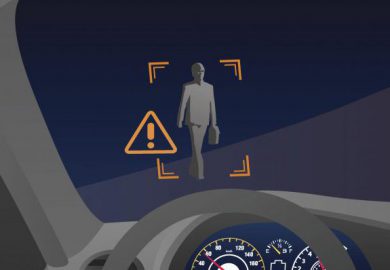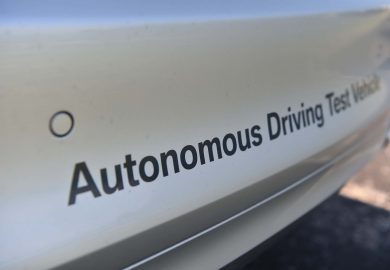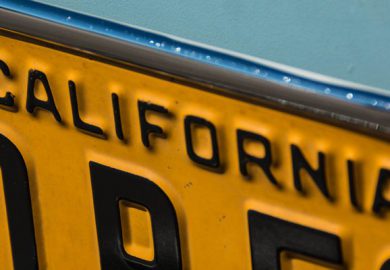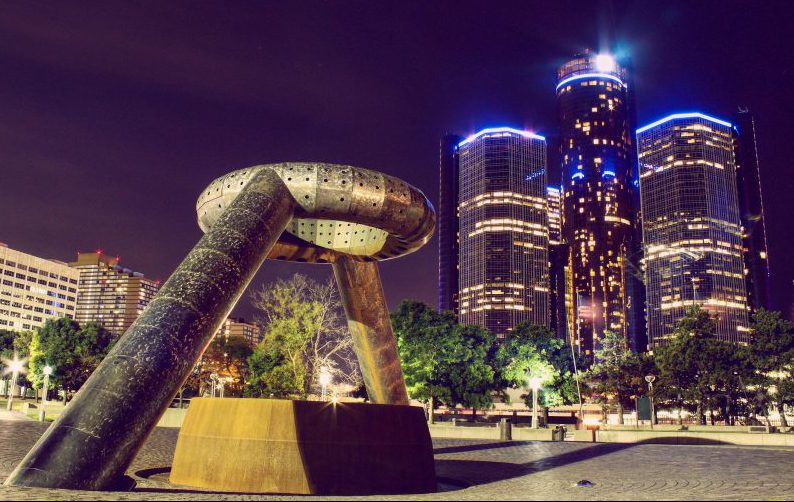Located just outside of Detroit, close to Ypsilanti on the west side, the American Center for Mobility aims to be the premier testing facility for autonomous cars. It is a partnership between multiple public and private entities. The center plans to bring together automotive suppliers, technology makers, engineers, and infrastructure all at the same place. According to the facility’s president, John Maddox, it is the only purposely designed facility set up for the testing of autonomous cars. It received $15 million in initial financing from the Michigan Strategic Fund as well as additional funding from many partners. A total of $110 million has been raised for the center, which will open in phases. The last phase of the facility is scheduled to open in 2019.
The Willow Run Facility
The Willow Run facility got its start as an aircraft manufacturing facility and was converted into an automotive assembly plant in the 1950s. The assembly plant closed in 2010, and the conversion for the American Center for Mobility project got underway shortly thereafter. The facility boasts a full spectrum of road features that autonomous cars might encounter in urban and suburban environments. It has a 2.5-mile highway loop, roundabouts, and intersections as well as a 700-foot tunnel for testing self-driving cars. There is also a triple-decker overpass at the facility, simulating interstate on and off ramps that self-driving cars and trucks will need to be able to navigate.
Technological Facilities
In total, the Willow Run facility has 335 acres of space for the testing of autonomous cars. The entire facility is connected to a fiber-optic network for the transmission of data to a large computing system. The network will allow the self-driving cars to communicate with one another and to transmit data to the central computers. The American Center for Mobility also has its own proprietary Wi-Fi and cellular phone service networks. The facility’s airport terminal building has been revamped for housing offices and meeting space, serving as the American Center for Mobility’s headquarters.
Goals for the American Center for Mobility
In addition to collecting data from self-driving cars, the facility may also serve as a hub where government agencies can meet directly with the automakers and technology developers. This might help with the facilitation of regulations and rules for self-driving cars. The facility will also be used for testing platoons of autonomous cars, which could help advance the technology toward commercialization, explains Andy Freels, president of Hyundai America Tech Center Inc.
The facility may also engage in testing of self-driving cars at higher speeds to see how the vehicle-to-vehicle communications systems work. In addition to testing communications, partners at the facility also plan to test how self-driving cars respond to a variety of road and traffic conditions, lane closures, road construction, and inclement weather. Michigan’s variety of weather and four-season climate will allow the researchers to collect a full range of data on how weather conditions interact with the artificial intelligence systems, safety, and operations of the vehicles. The facility also has east-to-west roads that align with the direct sunlight. This will allow for testing of sun-blindness of the lidar, simulating real-world commutes in which the sun is in the driver’s eyes.
Participants at the American Center for Mobility
Many automotive companies and suppliers are working together at the American Center for Mobility. Toyota was the first company to have one of its self-driving vehicles do laps around the facility’s track. Subaru donated $2 million to be a low-tier partner for testing self-driving vehicles at the facility. Visteon, a maker of artificial intelligence software for autonomous cars, is also a founding partner and testing participant. Visteon is testing its proprietary DriveCore technology at the facility. Visteon is also testing methods of communication between autonomous cars and infrastructure, such as signs. Other partners include the Ford Motor Company, which will also test self-driving vehicles at the facility.
Partners with the American Center for Mobility
In addition to the different automakers at the American Center for Mobility, there are also several partners working to advance the technology of autonomous cars. Fifteen universities in the state of Michigan are partners with the American Center for Mobility. Detroit’s Adient announced a partnership with the facility in March 2018. Adient is a supplier of automotive seating systems. Visteon Corp., which is an automotive cockpit electronics supplier, is also a founding partner of the facility. Its experience in high-tech autopilot electronics may facilitate the further development of self-driving cars. AT&T is the supplier of the facility’s cellular and Wi-Fi network, and it holds the contract for those services through 2020.























